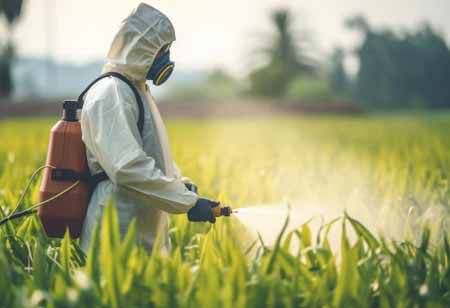Fremont, CA: Specialty chemicals have transformed modern agriculture by boosting productivity and improving resource utilization. They are vital in optimizing crop growth, enhancing soil health, and managing pests while minimizing environmental impact. These innovations contribute significantly to sustainable agricultural practices and ensure better yields for farmers.
One of the most significant contributions of specialty chemicals to agriculture is their ability to boost crop yields. Fertilizers, for instance, provide essential nutrients like potassium, phosphorus, and nitrogen, which are vital to plant growth. Specialized nutrient mixes ensure that crops receive the right amount of nutrients at the right stage of development, enhancing productivity and providing a reliable food supply.
While controversial in some contexts, pesticides and herbicides help protect crops from harmful pests, fungi, and weeds that can otherwise cause extensive damage. By controlling these threats, farmers can grow more food with less waste.
Specialty chemicals also help make agriculture more resource-efficient. For example, targeted fertilizers and pesticides reduce the need for large-scale application, thereby minimizing water, energy, and raw materials use. Precision agriculture technologies, such as smart irrigation systems and drone-assisted pesticide spraying, work with these chemicals to optimize input use and reduce environmental impact.
Natural or synthetic biostimulants can enhance plant resistance to abiotic stresses like drought, salinity, and temperature extremes. This improves crop resilience, reduces water usage, and helps maintain productivity under suboptimal conditions.
Soil health is a foundation of sustainable agriculture, and specialty chemicals can significantly contribute to maintaining or improving it. Soil conditioners and amendments such as biochar, humic acids, and composting agents can enhance soil structure, water retention, and nutrient cycling. These products contribute to soil fertility while reducing the demand for synthetic fertilizers, which can lead to nutrient imbalances and soil degradation over time.
Using biostimulants and integrated pest management (IPM) strategies decreases the dependence on chemical pesticides and fertilizers. Biostimulants, which often contain natural compounds such as seaweed extracts or plant hormones, improve plant health and promote natural defense mechanisms, reducing the need for synthetic chemicals. IPM focuses on using biological controls and cultural practices alongside targeted chemical applications, resulting in a more sustainable pest and disease management approach.

